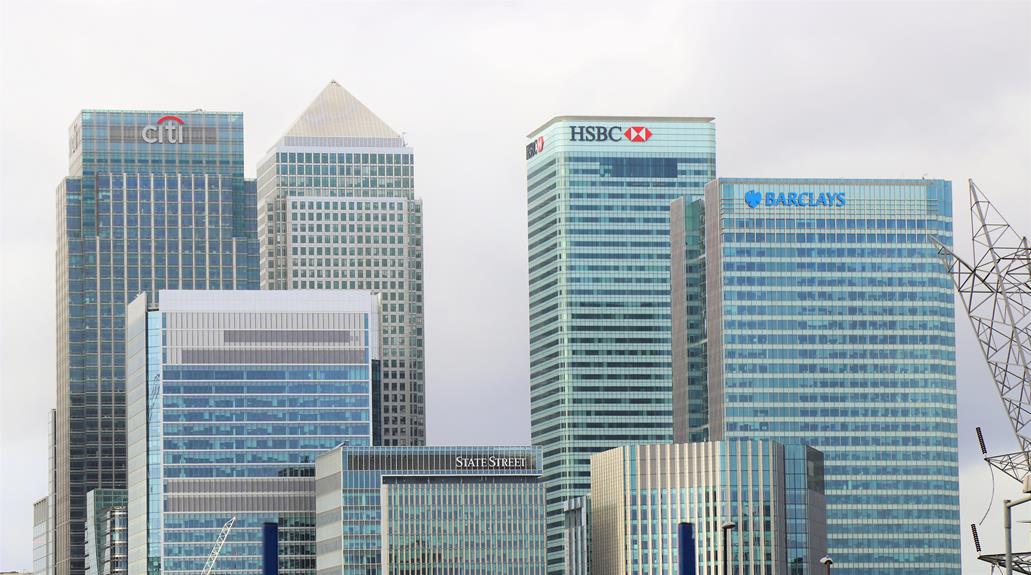Banks Under Fire: Lawsuits Surge Over Extended Overdraft Fees
In a staggering development, national banks are facing a wave of lawsuits over controversial extended overdraft fees. Critics argue these fees often exceed legal interest charge limits, implicating giants like Bank of America and JPMorgan Chase. This article explores the burgeoning legal battles, the implications for banks and customers, and the crucial need for customer awareness and action. Amidst this financial turmoil, understanding your rights has never been more critical.

Understanding Extended Overdraft Fees
To fully grasp the ongoing litigation, it's important to break down what extended overdraft fees are and why they've become a subject of contention. Extended overdraft fees are levied by banks when a consumer's account remains overdrawn beyond a specified period. The extended overdraft fees impact is significant as it can lead to financial strain for consumers who are often unaware of the mounting fees. These fees have been criticized as being disproportionate to the size of the overdraft and often surpass legal interest rates. As a result, they have become a focal point for consumer protection measures. Lawsuits are being filed against banks, accusing them of violating regulations and capitalizing on consumers' financial difficulties. The alleged infractions spotlight the urgent need for stronger consumer protection measures in the banking industry.
Rise in Bank Lawsuits
In light of the ongoing controversy over extended overdraft fees, a notable increase in lawsuits against prominent banking institutions has emerged, indicating a heightened level of consumer activism. This surge in litigation is primarily represented by class action lawsuits, challenging the legality of extended overdraft fees.
- Banks like Bank of America and JPMorgan Chase have already faced such lawsuits, indicating a trend that may continue to impact other institutions.
- The crux of these lawsuits is the argument that extended overdraft fees equate to excessive interest charges, violating the National Bank Act.
- These legal actions reflect a growing consumer awareness and willingness to challenge perceived banking malpractices.
- With legal precedents being set, more consumers may be encouraged to seek legal recourse against their banks.
National Bank Act and Overdraft Fees
While reflecting on the rise in lawsuits against banks for extended overdraft fees, it's crucial to delve into the role of the National Bank Act in this contentious issue. This Act, established in 1864, has implications that directly impact the ongoing debate on overdraft fees. Critics argue that these fees, when calculated as an annual percentage rate, far exceed the interest rate cap imposed by the National Bank Act. The impact on consumers is significant, as they bear the brunt of these excess charges. The Act's original intention was to maintain fairness in banking, but the contentious issue of extended overdraft fees presents a clear challenge to this objective. The surge in lawsuits against banks underscores the pressing need for clarity and reform in this area.
Notable Banks Under Lawsuit
Several prominent banks, including Bank of America, JPMorgan Chase, and Citizens Bank, have found themselves in the crosshairs of legal battles due to their questionable practice of charging extended overdraft fees. The rise in bank lawsuits is indicative of a broader issue concerning financial institutions' methods of revenue generation, impacting consumer trust significantly.
- Bank of America: Sued for its extended overdraft fees, with claims that they far exceed permissible limits.
- JPMorgan Chase: Legal battles ensue over the same issues as Bank of America, with potential consequences for its reputation.
- Citizens Bank: This Pennsylvania-based bank is also facing a lawsuit for its sustained overdraft fees.
- Others: Several other banks are also likely to face similar lawsuits, further eroding consumer trust in these institutions.
Extended Overdraft Fees Vs. Debit Charge Lawsuits
As we delve into the comparison between extended overdraft fees and debit charge lawsuits, it is crucial to understand the unique aspects of each legal dispute. Extended overdraft fees have a significant impact on consumer finances, often exacerbating financial distress. Conversely, debit charge lawsuits primarily revolve around banks manipulating transaction orders to maximize fees. The role of government regulations is also noteworthy. Regulatory bodies such as the Consumer Financial Protection Bureau scrutinize these practices, enforcing regulations designed to protect consumers. However, these lawsuits highlight potential gaps in the regulatory framework. The surge in both types of lawsuits indicates a growing discontent among consumers, who increasingly view these charges as exploitative. This underlines the need for more robust regulations to safeguard consumer interests.
Previous Settlements in Debit Lawsuits
Although numerous lawsuits over debit overdraft fees have been filed in recent years, it's important to note that many of these cases have resulted in significant settlements ranging from $62 million to $137.5 million. These previous settlement amounts have had a considerable impact on consumers, serving as a form of financial relief and a deterrent for banks.
- In 2012, Bank of America settled a lawsuit for $137.5 million over manipulating transaction orders to increase overdraft fees.
- Wells Fargo paid $203 million in 2010 for similar practices.
- JPMorgan Chase settled for $110 million in 2012.
- TD Bank paid $62 million in 2013 over reordering transactions to maximize overdraft fees.
These settlements highlight the importance of holding financial institutions accountable for their actions.
How to Act Against Overdraft Fees
In the face of rising extended overdraft fees, consumers have various options to challenge these charges and hold banks accountable. One of the primary means is to consult with a lawyer, who can provide expert guidance on legal proceedings and potential class action lawsuits. It's also important to take the issue up directly with your bank, requesting clarification on their policy regarding extended overdraft fees. A key component of acting against these charges is raising public awareness. By sharing personal experiences and information about ongoing lawsuits on social media platforms, consumers can bring the issue to the forefront, potentially prompting regulatory bodies to take action. Lastly, reporting the offending banks to the Consumer Financial Protection Bureau can instigate official investigations.
Legal Options Against Unlawful Fees
The escalating issue of extended overdraft fees has led to an increase in legal actions against banks, presenting consumers with a range of options to challenge these potentially unlawful charges. Understanding the legal implications is crucial for both consumers and the banking industry.
- Consultation: Consumers should consider consulting with a lawyer to fully understand their legal options.
- Lawsuits: Class-action lawsuits are an increasingly common response, potentially leading to significant settlements.
- Regulatory Complaints: The Consumer Financial Protection Bureau is a key resource for lodging formal complaints.
- Public Advocacy: Sharing experiences and raising awareness can drive industry-wide changes.
The implications for the banking industry are profound, potentially leading to reforms in how overdraft fees are charged and regulated.
Reporting Unfair Fees to Authorities
Amid increasing concerns regarding extended overdraft fees, it is vital for consumers to promptly report these potentially unlawful charges to the appropriate authorities. The complaint process is a crucial step in bringing these unfair practices to light, which can lead to investigations, lawsuits, and ultimately the reform of banking policies.
The impact on consumers can be profound, ranging from financial strain to credit damage. Reporting these fees not only gives the individual a chance to seek redress, but it also serves a broader public interest. It alerts regulators to potentially unfair practices, paving the way for broader investigations. Consumers are encouraged to lodge their complaints with their local consumer protection agency or the Consumer Financial Protection Bureau.
Importance of Raising Awareness
Raising awareness about extended overdraft fees and the ensuing legal battles is a critical step in ensuring transparency and fair practices within the banking industry.
- The impact of extended overdraft fees on low income individuals is severe, often pushing them further into debt.
- These fees have been subject to numerous lawsuits, indicating questionable legality and ethical practices.
- Despite existing regulations, banks continue to impose these fees, questioning the effectiveness of government regulations on overdraft fees.
- The public outcry and legal actions taken against these fees highlight the need for stricter oversight and regulation in the banking industry.
Greater awareness can lead to more informed customers, potentially reducing the negative impact of these fees and prompting regulatory bodies to introduce stricter rules.
Spotlight: Hair Relaxer Lawsuits
In a separate but equally alarming legal arena, lawsuits are mounting against manufacturers of hair relaxers such as Dark & Lovely and Motions, following claims of associated health issues. Users have reported severe conditions including hair relaxer cancer which has sparked an outcry for justice.
| Case | Legal Outcome |
|---|---|
| Jane Doe vs Dark & Lovely | Pending |
| Mary Johnson vs Motions | Settled |
These cases illustrate the potential dangers of hair relaxer products and highlight the need for users to understand their legal options. Compensation sought in these lawsuits is not just about monetary reparation but also about holding corporations accountable for their products' safety. As the legal battles intensify, the spotlight remains firmly on the unfolding hair relaxer lawsuits.
Compensation Opportunities in Lawsuits
Just as in the hair relaxer lawsuits, victims of extended overdraft fees also have the opportunity to seek compensation through legal action. There are several compensation options and legal remedies available to victims of such practices.
- Filing a lawsuit: Victims can file individual or class action lawsuits against banks. This has the potential to result in significant compensation, as seen in past cases.
- Settlements: Banks may offer to settle the case out of court, which can provide immediate financial relief to victims.
- Regulatory fines: Regulatory bodies may fine banks for illegal practices, which can indirectly benefit victims.
- Policy changes: Lawsuits can force banks to change their unfair practices, preventing future harm and potentially leading to refunds.
It's crucial to seek professional legal advice to explore these opportunities.
Stay Informed About Current Cases
Keeping abreast of the current class action lawsuits against banks charging extended overdraft fees is crucial for customers who believe they may be victims of such practices. The impact on consumers, particularly those living paycheck to paycheck, can be severe, driving them further into debt. Notably, compensation options through the legal system may provide redress. Staying informed about these cases can help affected customers understand their rights and potential avenues for recourse. This includes being aware of new lawsuits, settlement details, and changes in bank policies. Furthermore, it's essential to understand the legal landscape and potential implications for the banking industry. Ultimately, the surge in these lawsuits underscores the importance of consumer vigilance and the need for fair banking practices.
Anticipated Future Lawsuits Against Banks
Banks' rising implementation of extended overdraft fees has led to a projection of an increase in future lawsuits, as more customers become aware of the potential illegality of such charges. The potential impact of these lawsuits is immense, touching on facets of both the banking and legal sectors.
- Consumer advocacy groups are likely to intensify their campaigns against such questionable banking practices.
- The banking sector may face severe financial implications in the form of compensations and legal fees.
- Reputational damage may also urge banks to reassess their fee structures.
- Regulatory bodies may impose stricter rules and regulations on overdraft charges, leading to an overhaul of bank policies.
The anticipated surge in lawsuits underlines the need for transparency and fairness in banking operations.
Citizens Bank: A Case Study
In the context of these anticipated legal challenges, Citizens Bank presents an intriguing case study in the ongoing controversy over extended overdraft fees. The Citizens Bank Lawsuit showcases a pattern of complaints against the bank's policy of charging extended overdraft fees. This controversy highlights the Overdraft Fee Impact on Consumers, viewed as an unfair practice that disproportionately affects those with low income.
| Case | Issue | Impact |
|---|---|---|
| Citizens Bank Lawsuit | Extended Overdraft Fees | High financial burden on consumers |
| Bank of America | Similar Fees | Settled for $66 million |
| JPMorgan Chase | Similar Fees | Settled for $162 million |
This table illustrates the considerable financial implications of such lawsuits, reflecting the sizable burden borne by consumers due to these controversial banking practices.
Frequently Asked Questions
How Do Extended Overdraft Fees Compare to Other Common Bank Fees?
Extended overdraft fees, unlike standard bank charges, are levied based on the duration an account remains overdrawn, not the overdraft amount. This contrasts with other bank fees such as ATM or monthly maintenance fees. Fee transparency is often criticized in relation to extended overdraft fees, as they can accumulate quickly, causing financial strain. Overdraft alternatives, such as linked savings accounts or overdraft lines of credit, often provide more consumer-friendly solutions, mitigating the high costs associated with extended overdrafts.
What Are Some of the Potential Negative Impacts of Extended Overdraft Fees on Consumers' Financial Health?
Extended overdraft fees can significantly strain consumers' financial health, leading to a vicious cycle of debt. Lack of fee transparency exacerbates this problem, as customers may be unaware of the accumulating charges. Regulatory measures are needed to ensure clear communication of such fees, preventing banks from exploiting customers' financial vulnerabilities. These fees can also negatively impact credit scores, hindering future borrowing opportunities. Therefore, it's vital for consumers to understand and mitigate potential impacts of extended overdraft fees.
How Can Consumers Protect Themselves From Being Charged Extended Overdraft Fees in the Future?
To protect themselves from extended overdraft fees, consumers should actively engage overdraft protection services offered by their banks, thereby minimizing the risk of overdrafts. Additionally, consumers should demand fee transparency from their financial institutions, ensuring they fully understand all potential charges associated with their accounts. Regular account monitoring and maintaining a buffer of funds can also serve as proactive measures against unexpected fees. Informed decision-making is key to safeguarding financial health.
Are There Any Banks That Do Not Charge Extended Overdraft Fees?
Navigating the financial landscape, one may find banks offering alternatives to extended overdraft fees. Institutions like Capital One 360, Discover Bank, and Ally Bank take an ethical stand with complete fee transparency and provide overdraft alternatives such as linked accounts, overdraft lines of credit, or even overdraft forgiveness. Customers are advised to thoroughly understand bank policies and opt for financial institutions that prioritize transparent practices to avoid unnecessary charges.
How Has the Banking Industry Responded to the Criticism and Lawsuits Regarding Extended Overdraft Fees?
In response to criticism and lawsuits over extended overdraft fees, the banking industry has executed several strategies. Primarily, they have sought to defend their fee structures in court, resulting in varied litigation outcomes. Concurrently, they've initiated internal reviews and modifications to their policies, governed by regulatory measures. Finally, some institutions have embarked on proactive communication campaigns to inform customers about overdraft policies, aiming to mitigate reputational damage.

This post has been generated by AI and was not reviewed by editors. This is Not legal advice. Please consult with an attorney.




